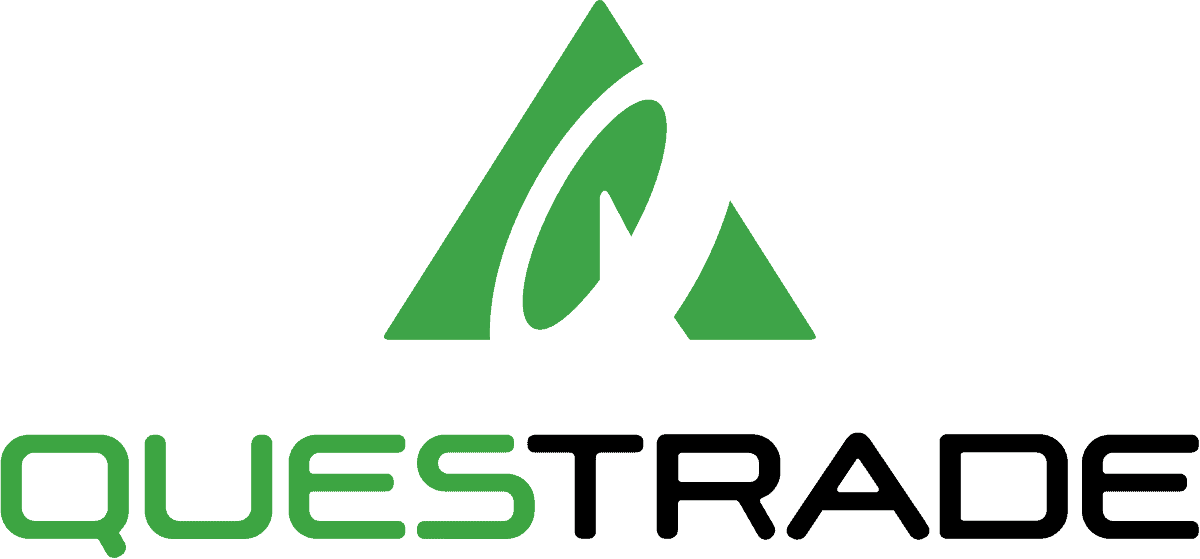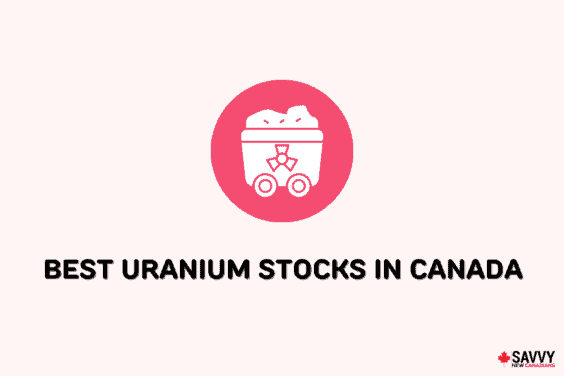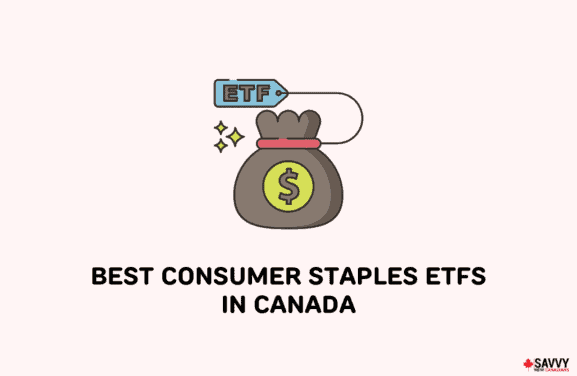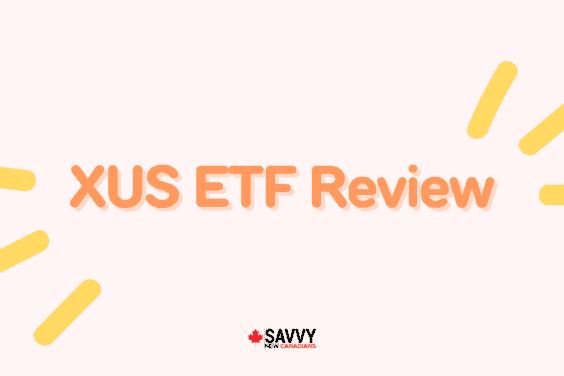TD Direct Investing and Questrade are two of Canada’s most popular brokerage platforms.
Unlike TD Direct Investing, which a big bank (TD) owns, Questrade is an independent, self-directed trading platform.
Although DIY investors are in good hands with either brokerage, my top choice is Questrade after considering fees and overall trading experience.
This Questrade vs. TD Direct Investing comparison delves into their investment offerings, account options, trading fees, platforms, promotions, pros, and cons.
Featured Offer:
Readers of Savvy New Canadians get $50 in free trade credits when they open a Questrade account and fund it with at least $1,000.
Questrade Overview
Questrade

On Questrade’s Website
- Fees: $4.95 to $9.95 per trade
- Account minimum: $1,000 to start trading
- Promotions: Get $50 in free trades
Questrade is an investment trading platform founded in 1999.
It has over $30 billion in assets under administration and is one of the fastest-growing online brokerages in Canada, with over 200,000 accounts opened annually.
The company was ranked #1 among self-directed brokerage firms in the J.D. Power 2020 Canada Self-Directed Investors Satisfaction StudySM.
In addition to its DIY trading platform offered through Questrade Inc., you can also access managed investment portfolios through Questwealth Portfolios via Questrade Wealth Management Inc.
Questrade, Inc. and Questrade Wealth Management Inc are part of the Questrade Group of Companies.
What is TD Direct Investing?
TD Direct Investing

On TD’s Website
- Fees: Trade stocks and ETFs at $9.99 per trade
- Account minimum: $15,000 to avoid account maintenance fees
- Promotions: Sometimes available
TD Direct Investing has a storied history starting with the launch of TD Green Line Investor services in 1984, when it was the first self-directed brokerage platform in Canada owned by a bank.
It introduced WebBroker in 1996 (the first online brokerage platform) and was rebranded as TD Waterhouse Discount Brokerage in 1999.
The online brokerage was again rebranded to TD Direct Investing in 2012. It is owned by the Toronto-Dominion Bank, the second-largest bank in Canada by asset size.
Questrade vs. TD Direct Investing
Following an overview of both discount brokerages, let’s dig into how they compare based on end-user needs and requirements.
Questrade vs. TD Direct Investing: Investment Products
Both TD Direct Investing and Questrade offer the most popular investment types, including:
- Stocks
- Exchange-Traded Funds (ETFs)
- Mutual Funds
- Options
- Guaranteed Investment Certificates
- Fixed Income assets
- Precious metals
Questrade vs. TD Direct Investing: Investment Accounts
Both platforms support the most used registered and non-registered investment account types.
For registered accounts, Questrade and TD Direct Investing offer:
- Tax-Free Savings Account (TFSA)
- Registered Retirement Savings Plan (RRSP)
- Registered Retirement Income Fund (RRIF)
- Registered Education Savings Plan (RESP)
- Locked-In Retirement Accounts (LIRA)
- Life Income Fund (LIF)
Their non-registered accounts include personal, corporate, investment club, and margin accounts.
Questrade also offers Forex and Contracts for Difference (CFD) accounts.
Questrade vs. TD Direct Investing: No-Commission ETFs
No-commission trading is increasingly becoming a factor when deciding which brokerage platform to choose, as differences in other service offerings become insignificant.
Questrade is one of a few brokerages to waive trading commissions when you buy ETFs (another is Wealthsimple Trade).
TD Direct Investing does not waive trading commissions when you buy or sell ETFs.
While Questrade has a $9.95 fee per transaction for mutual funds, there is no fee to buy, sell or switch mutual funds on TD Direct Investing (the greater of a 1% short-term redemption fee or $45 applies when the fund is held for less than 30 days).
Questrade vs. TD Direct Investing: Trading Fees
Aside from offering no-commission trading for ETFs, Questrade also beats TD Direct Investing on its standard trading fees. Here’s how they compare below:
| Trading Commissions | Questrade | TD Direct Investing |
| Stocks | $4.95-$9.95/trade | $9.99/trade |
| ETFs | Free to buy: $4.95-$9.95 per “sell” trade | $9.99/trade |
| Options | $9.95 + $1/contract | $9.99 + $1.25/contract |
| Bonds | Free with a minimum $5,000 purchase | Not specific (fee included in the quoted price) |
| Mutual funds | $9.95/trade | Free |
| FX & CFDs | Spread as low as 0.08 pips | N/A |
| Precious metals | $19.95 USD/trade | $30 + $1/oz gold bullion; $30 + 0.10/oz silver bullion (USD) |
Active traders who subscribe to an advanced Canadian or U.S. market data plan on Questrade get a discount on trading fees under a fixed or variable plan:
| Investment Product | Fixed Pricing | Variable Pricing |
| Stocks | $4.95/trade | 1 cent/share up to a maximum of $6.95 per trade |
| Options | $4.95 + $0.75/contract | $6.95 + $0.75/contract |
| ETFs | Free to buy; $4.95/trade to sell | Free to buy; 1 cent/share up to a maximum of $6.95 per trade |
On TD Direct Investing, you must place 150+ trades per quarter to qualify for “active trader pricing.”
- Stocks & ETFs: $7/trade
- Options: $7 + $1.25/contract
Questrade vs. TD Direct Investing: Administrative Fee
On both platforms, you may have to pay other transaction and service fees depending on the types of trades you place.
Of note is the quarterly “maintenance fee” of $25 you pay on TD Direct Investing when your total account asset is below $15,000.
Questrade does not charge a maintenance or inactivity fee.
Both Questrade and TD Direct Investing charge $150 to transfer your account in full to another financial institution.
Learn about RRSP and TFSA transfers between banks.
Questrade vs. TD Direct Investing: Minimum Investment
To begin investing using Questrade, you need a minimum deposit of $1,000.
TD Direct Investing does not have a minimum investment amount.
Questrade vs. TD Direct Investing: Trading Platform and Tools
Both TD Direct Investing and Questrade offer trading platforms on all devices to investors with varying skill levels (newbies and experts alike).
Questrade has a web app, mobile app, Questrade IQ Edge (desktop app for advanced order types), and Questrade Global for international markets.
With a WebBroker, mobile app, and Advanced Dashboard for active traders, TD Direct Investing is just as good. TD also offers a ThinkorSwim platform for U.S. options trades.
How about market data?
Both platforms provide access to level 1 and 2 live-streaming data depending on the package you pay for or whether you qualify as an active trader.
Standard accounts get access to basic live streaming data (snap quotes).
Research tools include screeners, charts, alerts, watchlists, and market reports from third-party providers.
Questrade vs. TD Direct Investing: Customer Service
Customer service is one area where your mileage may vary depending on the help you need, who you speak to, and when you make contact.
As per their websites, TD Direct Investing provides customer support from Monday to Friday (7am – 6pm ET).
As for Questrade, you can reach someone by chat and phone from Monday to Friday (7:30am – 8pm ET).
If the comments on my review page for both platforms are anything to go by, they both need to work on the level of support they provide to clients.
Questrade vs. TD Direct Investing: Are They Safe?
Both Questrade and TD Direct Investing are members of the Canadian Investor Protection Fund (CIPF) and are regulated by the Investment Industry Regulatory Organisation of Canada (IIROC).
CIPF protects your investments against member-firm insolvency by up to $1 million.
TD Direct Investing is owned by one of Canada’s oldest (and biggest) banks.
In addition to the default CIPF insurance, Questrade client accounts are protected with an extra $10 million in private insurance.
Questrade vs. TD Direct Investing: Promotions
When you open a new Questrade account using our exclusive link (or use referral code SAVVY50), you get $50 in free trades.
TD Direct Investing does not offer a comparable promotion as of this writing.
Questrade vs. TD Direct Investing: Other Features
If you want some help with investing, a managed investment portfolio overseen by experts at Questwealth may work for you.
Questwealth clients enjoy low investment fees (like 0.25% vs. 1.98% for equity mutual funds), and everything is done on your behalf (i.e. investment picks, portfolio rebalancing, etc.).
Readers of Savvy New Canadians can invest up to $10,000 free for 1 year on Questwealth.
TD Bank does not offer a robo-advisor service; however, you can get some assistance via TD GoalAssist.
Pros and Cons of Questrade
The advantages of using the Questrade platform include:
- Free ETF purchases and competitive fees for other trades
- No account maintenance fee, which is great if you are just starting to invest
- Transfer fees incurred when you move your investment account to Questrade are waived up to $150
- Supports multiple investment products and accounts
- $50 in free trades
Downsides
- A minimum investment deposit of $1,000 is required
- Its no-commission trading does not extend to stocks
Pros and Cons of TD Direct Investing
TD Direct Investing clients enjoy:
- Versatile trading platforms for experienced traders
- Access to multiple investment products and accounts
- Backed by a big bank
- Extensive investment educational resources
- Transfer fees are waived up to $150 when you transfer an account worth $25,000 or more
Downsides
- Does not offer free ETF trades
- Has one of the highest trading fees in Canada
- A quarterly $25 fee applies to small accounts
Questrade vs. TD Direct Investing vs. Wealthsimple Trade
| Questrade | TD Direct Investing | Wealthsimple Trade | |
| Stock trading fee | $4.95 – $9.95 | $9.99 | $0 |
| ETF trading fee | $4.95 – $9.95 (purchases are free) | $9.99 | $0 |
| Option trading fee | $9.95 + $1 | $9.99 + $1.25 | N/A |
| Active trader pricing (stocks/ETFs) | $4.95-$6.95 | $7 | N/A |
| Accounts offered | RRSP, TFSA, RESP, LIF, LIRA, RRIF, corporate, margin | RRSP, RDSP, RESP, TFSA, RRIF, LIF, LIRA, margin | RRSP, TFSA, personal non-registered account |
| Investment products | Stocks, ETF, bonds, mutual funds, GICs, IPOs, FX, CFD, precious metal | Stocks, ETFs, mutual funds, precious metals, GICs, bonds | Stocks and ETFs |
| Minimum investment | $1,000 | $0 | $0 |
| Maintenance fee | N/A | $25/quarter if your account balance is below $15,000 | N/A |
| USD accounts | Free | Free | $10 monthly fee for USD account and real-time data |
| Transfer fees waived? | Up to $150 | Up to $150 for transfers of $25,000 or more | Up to $150 for transfers of $5,000 or more |
| Promotional offer | $50 in free trades | N/A | $25 bonus when you deposit $150 or more (Read Review) |
Questrade vs. TD Direct Investing: Conclusion
I have used both Questrade and TD Direct Investing, and you can’t go wrong with either one.
That said, Questrade wins this match-up between Questrade vs. TD Direct Investing.
Cost-conscious investors can save on trading fees with Questrade by not paying fees when they purchase ETFs and paying a minimum of $4.95 on stock trades.
If you choose Questrade, get $50 in free trades here.








Obviously a lot of work went into this article. Well done. We have been paying $4.95 per trade (stocks) at TD for some time now, definitely a year or more. But TD will not offer this unless you complain about the $7 that they would like to charge. We have accounts at Wealthsimple, free stock trades, but the platform offers very little in the way of a real trading desk, along the lines of Advanced Dashboard at TD, which is excellent. National Bank, which I tried a year or so ago now has free trades, a decent platform along with fractional pricing on stocks, which TD does not offer. I am back with National now. As a day trader, National routinely saves me lots of cash daily. Having donated over $80,000 to TD in fees over the last four years we are really enjoying the free trades at National. This allows scaling in and out of trades, something that is completely cost prohibitive with TD. TD has poor customer service, it being difficult or nearly impossible to resolve any issues that crop up. Letters to the CEO of TD are ignored. It also appears that TD has no intention of offering free trades in the foreseeable future. Perhaps if Tastyworks ever gets to Canada, TD will alter their position. Making actual trades is very fast with TD, considerably slower at National and slower yet at Wealthsimple. That is a function of each of the platforms. Wouldn’t it be nice if someone offered the best of all three in a single platform?
@K.Elliott: Thanks for pointing out the possibility of paying $4.95 per trade for stocks at TD…first I’m hearing of it. I definitely think the big bank brokerages will be forced to lower trading fees soon enough as the competition continues to heat up.
Hoping to transfer TFSA funds to Questrade from another supplier ,if possible .
@Ian: Yes, that’s possible. Questrade usually covers your transfer fee if you meet the requirements.